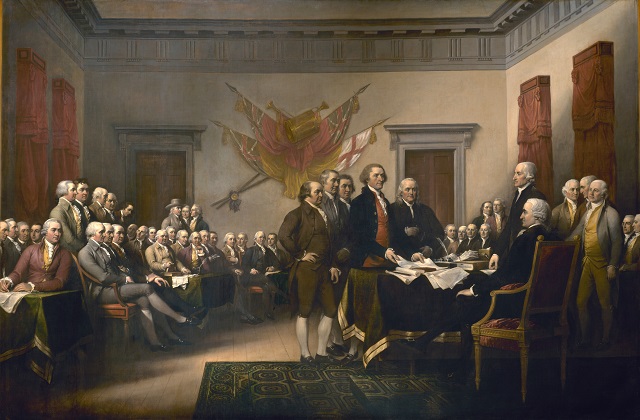
“Declaration of Independence” by painter John Trumbull.
We all know Thomas Jefferson’s famous words immortalized in the Declaration of Independence: “We hold these truths to be self-evident, that all men are created equal.” But when did the world start thinking about equality? Lynn Hunt, a distinguished research professor at UCLA, and author of the book Inventing Human Rights, says we haven’t always recognized basic human rights, and the very concept wasn’t spoken much about until the end of the 1700s. We explore its origins.
Three Takeaways
- The surging popularity of the novel in the 18th century led to a greater connection between people of different genders and classes, creating a push for the idea of human equality. Even if they were fictional, novels offered up full-formed, sympathetic portraits of peasants and slaves; aristocratic readers were able to see in these characters reflections of their own humanity.
- Hunt describes the advancement of human rights as a process of, “Two steps forward, one step back,” because there will always be people who are threatened or upset by a change in social orders.
- In ten or twenty years, how will we look back on our views of human rights? Hunt says we will always reflect on the struggles of our generation and generations before us and think, “How could that be?”
More reading
- Lynn Hunt gives a talk on why the history of human rights needs to be told.
- NPR's tweeting of the Declaration of independence caused some backlash.
- Here’s our interview with Nancy Malkiel about newly co-ed colleges in the 1960s and 70s.

